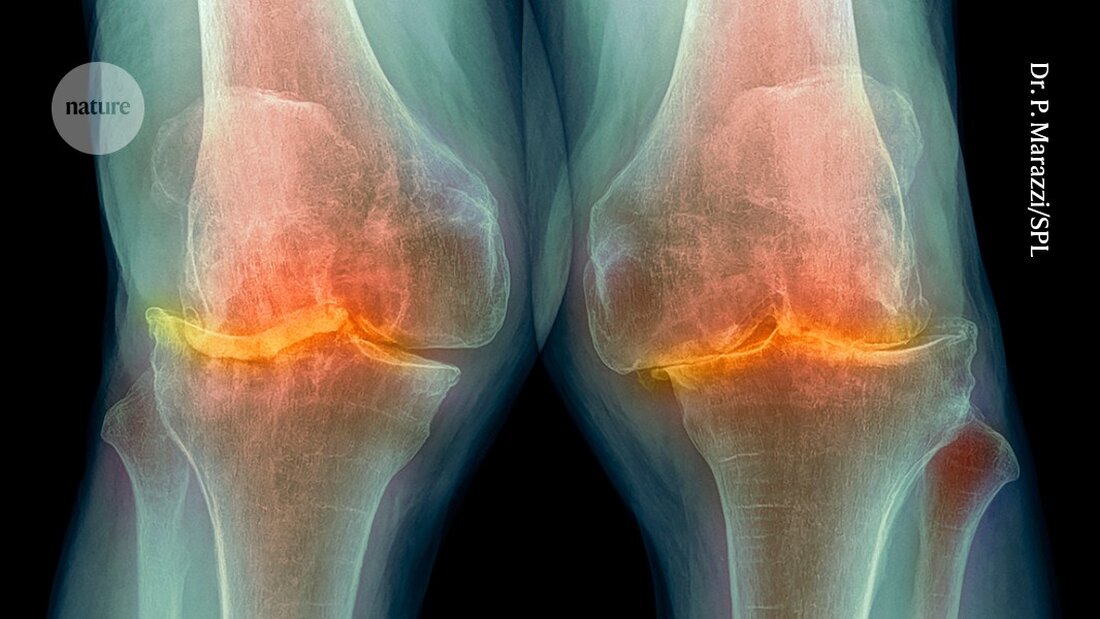Life-changing benefits of an anti-obesity drug for arthritis
A study shows that the anti-fatty drug semaglutide reduces pain in knee arthritis and improves quality of life.

Life-changing benefits of an anti-obesity drug for arthritis
A Miracle cure for weight loss Significantly reduces pain from obesity-related knee osteoarthritis and improves a person's ability to perform activities such as walking. This is evidenced by a clinical trial conducted in 11 countries - the first of its kind to demonstrate that one of the new generation of anti-obesity drugs can also be used to treat arthritis. The drug semaglutide has achieved pain reduction comparable to that of opioid medications.
By the end of the study, many participants had experienced so much pain relief that they were no longer eligible for the study, says Henning Bliddal, a rheumatologist at Copenhagen University Hospital in Bispebjerg and Frederiksberg, who helped run the study. “They received a therapy that was so effective that they were more or less treated out of the study,” he explains.
The findings are "important and could be helpful" for people with knee osteoarthritis, says Leigh Callahan, an epidemiologist at the University of North Carolina at Chapel Hill.
The results were published today in the New England Journal of Medicine 1. The study was sponsored and designed by Novo Nordisk, a company based in Bagsværd, Denmark. Novo Nordisk makes semaglutide, which is sold as Ozempic to treat diabetes and as Wegovy to treat obesity. Bliddal briefly worked as a paid consultant for the company while the study was being planned.
Spreading plague
Osteoarthritis, which leads to stiff and painful joints, is one of the most common diseases of old age, with the knee joint being most commonly affected. People with obesity are at increased risk of developing knee osteoarthritis because extra weight puts more strain on the joints. Callahan reports that obesity also worsens symptoms. Pain from this condition can prevent people from moving, making it extremely difficult to lose weight through lifestyle changes, says Bliddal.
The study involved about 400 participants on five continents who were randomly divided into two groups: one group received weekly injections of semaglutide, the other a placebo. They also received advice on healthy eating and physical activity. At the start of the study, participants suffered from obesity and their average score on a 100-point pain scale was 71 - a score at which walking was painful.
After 68 weeks of injections, participants who took semaglutide had lost significantly more weight than those who received the placebo. They also reported a significantly greater reduction in the pain scale: an average of 42 points compared to an average of 28 points for the placebo participants. These participants also noticed greater improvement in their daily lives, such as climbing stairs.
This improvement may be due in part to reduced stress on the knee from weight loss, the authors write. But Semaglutide also has anti-inflammatory effects, which may help relieve pain.
Despite the benefits, Bliddal raises concerns about the long-term outlook for those who use semaglutide to relieve knee osteoarthritis. “Do these people have to take semaglutide forever” to manage their pain? People who stop taking the medication usually regain the weight they lost, and the drugs are expensive – a monthly price can cost hundreds of dollars.
Callahan emphasizes that it is important to complement antiobesity medications with lifestyle changes to achieve long-term weight stabilization, even if the results appear "very exciting."
-
Bliddal, H. et al. N. Engl. J. Med. 391, 1573–1583 (2024).

 Suche
Suche
 Mein Konto
Mein Konto
